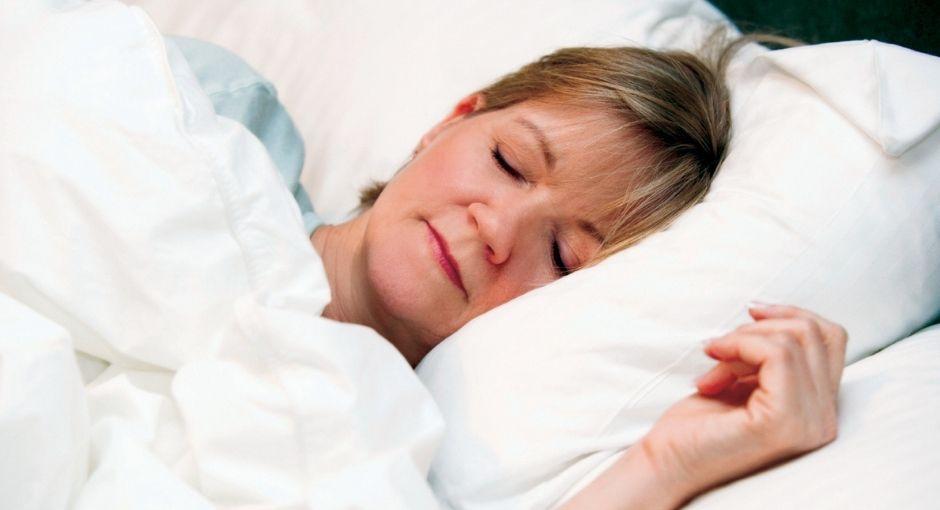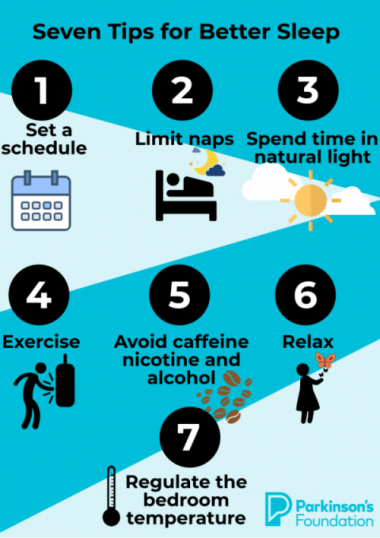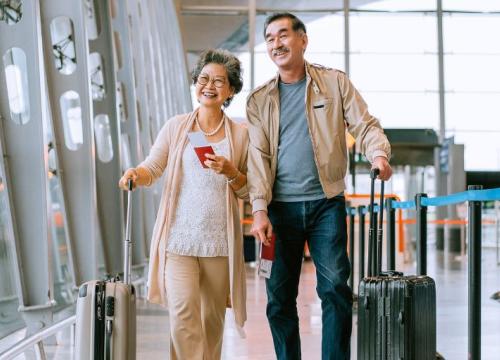7 Tips for Better Sleep

To have a good night’s sleep, we should work to create healthy habits and a sleep routine. Just as you brush your teeth to maintain good dental health, there are things you can do to improve nighttime sleep and daytime alertness.
Sleep-related symptoms are reported by more than 75 percent of people with Parkinson’s disease (PD). For people with PD, sleep becomes even more important as the body needs more time to restore and repair itself. The brain changes that are part of PD can also cause sleep disorders and some people have problems sleeping even before PD is diagnosed.
Getting enough sleep is essential, not just for people with PD. These seven tips can help you create healthier habits for a better sleep.
1. Set a schedule
Set a specific time to go to bed. Making this a habit will help you keep track of the hours you sleep and maintain a schedule. Going to bed and getting up at the same time helps set good sleep-wake rhythms.
2. Limit naps
If you nap, try to do so at the same time every day, for no more than an hour, and not after 3 p.m. Daytime naps may make it hard to fall and stay asleep at night. Not all naps are bad, studies have shown that short naps (lasting 15–20 minutes) may improve mood, alertness and performance on activities of daily living and other tasks.
3. Spend time in natural light
Light helps set our internal clock. Studies have linked daytime exposure to natural light with sounder sleep. If you can’t get outdoors, consider light therapy — sitting near a light therapy box. Studies have also suggested that movement and non-movement symptoms may improve with light therapy.
4. Exercise
For people with Parkinson’s, exercise can help maintain balance, mobility and activities of daily living. Among many of its benefits, exercise promotes good sleep. After a workout, give yourself a few hours to let your body regulate its temperature, adrenaline and heart rate. Try to exercise every day and avoid exercise after 8 p.m.
5. Avoid caffeine nicotine and alcohol
While coffee can help with daytime sleepiness, caffeine and nicotine are stimulants that can cause insomnia. Avoid them in the afternoon or at night. Alcohol may help you fall asleep, but sleep can be interrupted as your body processes alcohol.
6. Relax
Getting in a relaxed mood can reduce anxiety and lead to better sleep. Make relaxation rituals a habit and listen to music or take a warm bath to settle down. Do not watch television in bed; try to use the bed for sleeping or sexual activity.

7. Regulate the bedroom temperature
A cooler temperature is better for sleep but try to avoid temperature extremes. Environments that are too cold or too warm are not conducive to good sleep. Regulating the temperature will help with your relaxation and sleeping mood.
Sleep is a critical topic of interest for the PD community, which is why the Parkinson’s Foundation has multiple resources dedicated to address it:
Related Blog Posts

20 Parkinson’s-Friendly Gifts

8 Tips for Traveling with Parkinson’s
